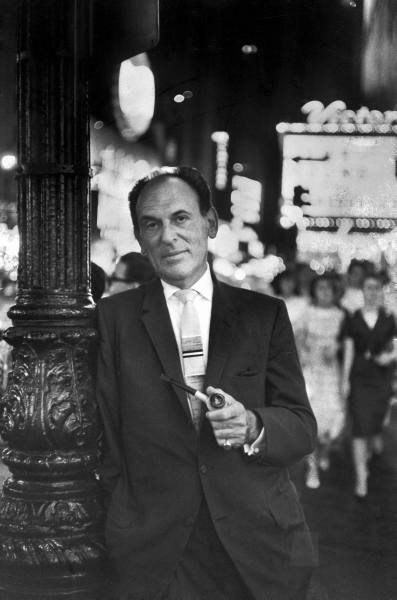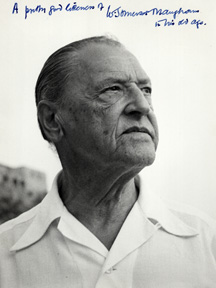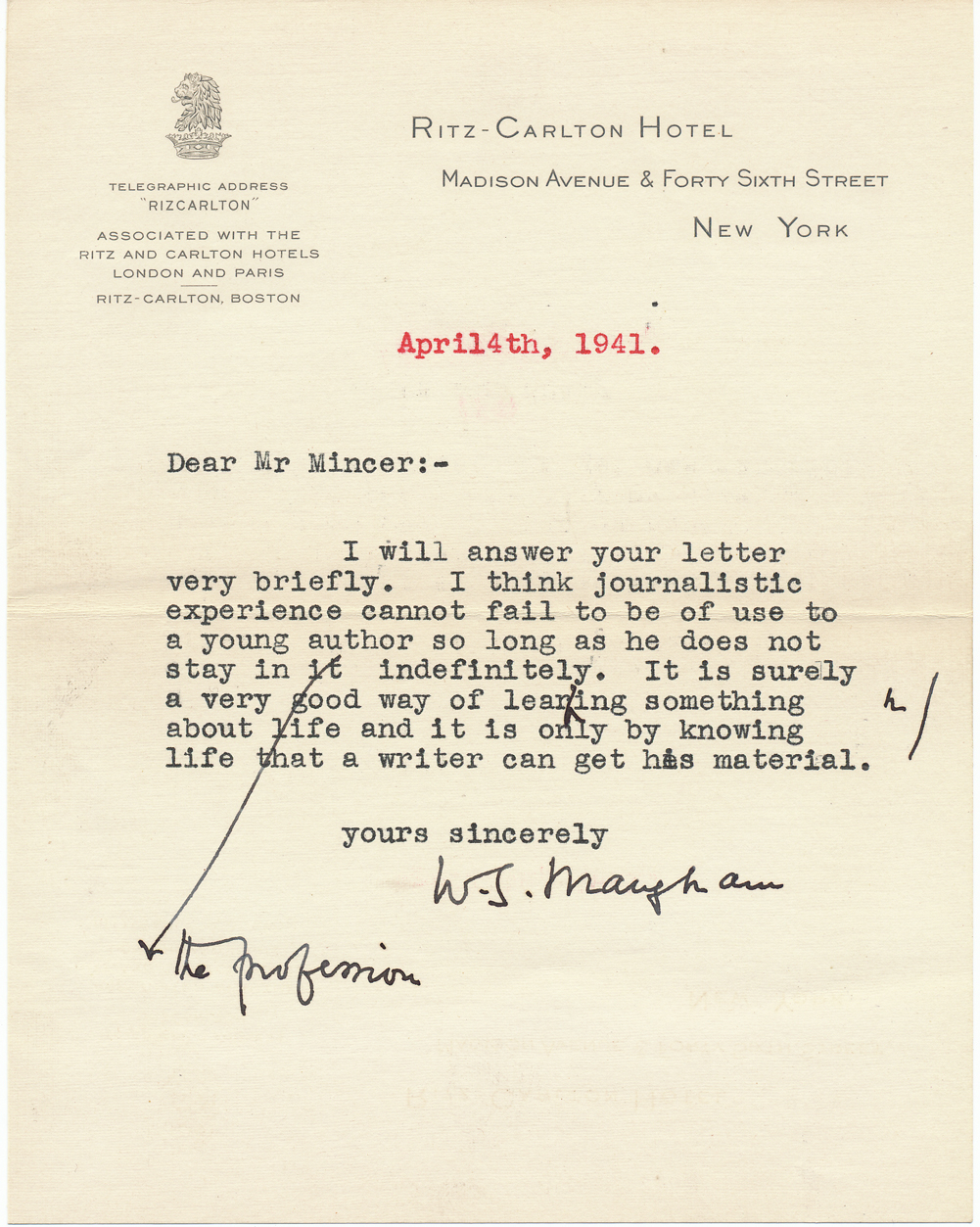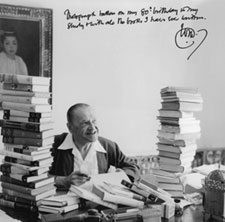I just heard via Facebook from Barbara Brown, my old high-school English and drama teacher. She directed the first play I ever saw, a production of Blithe Spirit that was performed in the gymnasium of the Smalltown Junior High School forty-one years ago. That production caused me to become stage-struck, with consequences of which readers of this blog need not be reminded. A couple of years later I joined the Smalltown High School Drama Club, and Barbara directed me in stagings of Harvey and The Innocents. I never was much of an actor, alas, but I learned things from her that I’ve never forgotten.
 Barbara left Smalltown around the same time that I did, and I hadn’t heard anything from or about her between then and this morning. As I read her message, I was reminded of the wonderful passage from Act One in which Moss Hart describes the backstage telegrams he received on the opening night of Once in a Lifetime, his first collaboration with George S. Kaufman and the play that made him famous:
Barbara left Smalltown around the same time that I did, and I hadn’t heard anything from or about her between then and this morning. As I read her message, I was reminded of the wonderful passage from Act One in which Moss Hart describes the backstage telegrams he received on the opening night of Once in a Lifetime, his first collaboration with George S. Kaufman and the play that made him famous:
Opening-night telegrams may seem a foolish and perfunctory convention, but they are not. Those words are the only ones likely to penetrate the minds and warm the hearts of the people who receive them at this particular moment. Opened backstage in that chill interval of waiting for the house lights to darken and the curtain to rise, they perform the admirable function of saying that hope still runs high. Far-fetched little jokes seem uncommonly humorous in opening-night telegrams, and ten words with an unexpected name signed to them can be strangely touching….
The years leaped out of each envelope with quicksilver flashes of memory, the old jumbled with the new. Time seemed to stop as I looked at each name and the years each name recalled, and something like calm began to settle over me.
Needless to say, Western Union is now a thing of the distant past, but Facebook and Twitter are taking up the slack, and it meant as much to me to hear from Barbara as it did to Moss Hart to hear from all the people in his past who sent telegrams to the Music Box Theatre on that fateful night in 1930. So thank you, dear teacher, for thinking to get in touch with me today. You were the first in a long line of people who made The Letter possible. I never forgot you, and I never will.

 A few days ago I heard Jonathan Richards, a Santa Fe-based actor and writer, give a public reading of “The Letter,” the short story by W. Somerset Maugham that inspired Paul Moravec and me to write
A few days ago I heard Jonathan Richards, a Santa Fe-based actor and writer, give a public reading of “The Letter,” the short story by W. Somerset Maugham that inspired Paul Moravec and me to write  In the second scene of the opera, Howard Joyce, the very proper lawyer who takes on the case of Leslie Crosbie, a woman who shot and killed a neighbor whom she claims tried to rape her, reflects on his client’s plight. “One never knows what respectable women are capable of,” he muses. My libretto contains most of the best-known lines of dialogue from Maugham’s stage version of The Letter, but that particular line isn’t in the play, and when Jim Maddalena, who plays the role of Joyce, told me that it was his favorite line in the opera, I wondered whether I’d actually come up with it myself.
In the second scene of the opera, Howard Joyce, the very proper lawyer who takes on the case of Leslie Crosbie, a woman who shot and killed a neighbor whom she claims tried to rape her, reflects on his client’s plight. “One never knows what respectable women are capable of,” he muses. My libretto contains most of the best-known lines of dialogue from Maugham’s stage version of The Letter, but that particular line isn’t in the play, and when Jim Maddalena, who plays the role of Joyce, told me that it was his favorite line in the opera, I wondered whether I’d actually come up with it myself. So far as I can remember, this is the only line from “The Letter” that can be found in the opera but not in the play. Even so, it’s a good example of how I changed virtually all of Maugham’s language in order to make it pithier and more lyrical. Try to imagine Jim singing that handsomely worded but rather complicated sentence and you’ll start to get an idea of the process by which a librettist turns the script of a play into the libretto of an opera.
So far as I can remember, this is the only line from “The Letter” that can be found in the opera but not in the play. Even so, it’s a good example of how I changed virtually all of Maugham’s language in order to make it pithier and more lyrical. Try to imagine Jim singing that handsomely worded but rather complicated sentence and you’ll start to get an idea of the process by which a librettist turns the script of a play into the libretto of an opera.